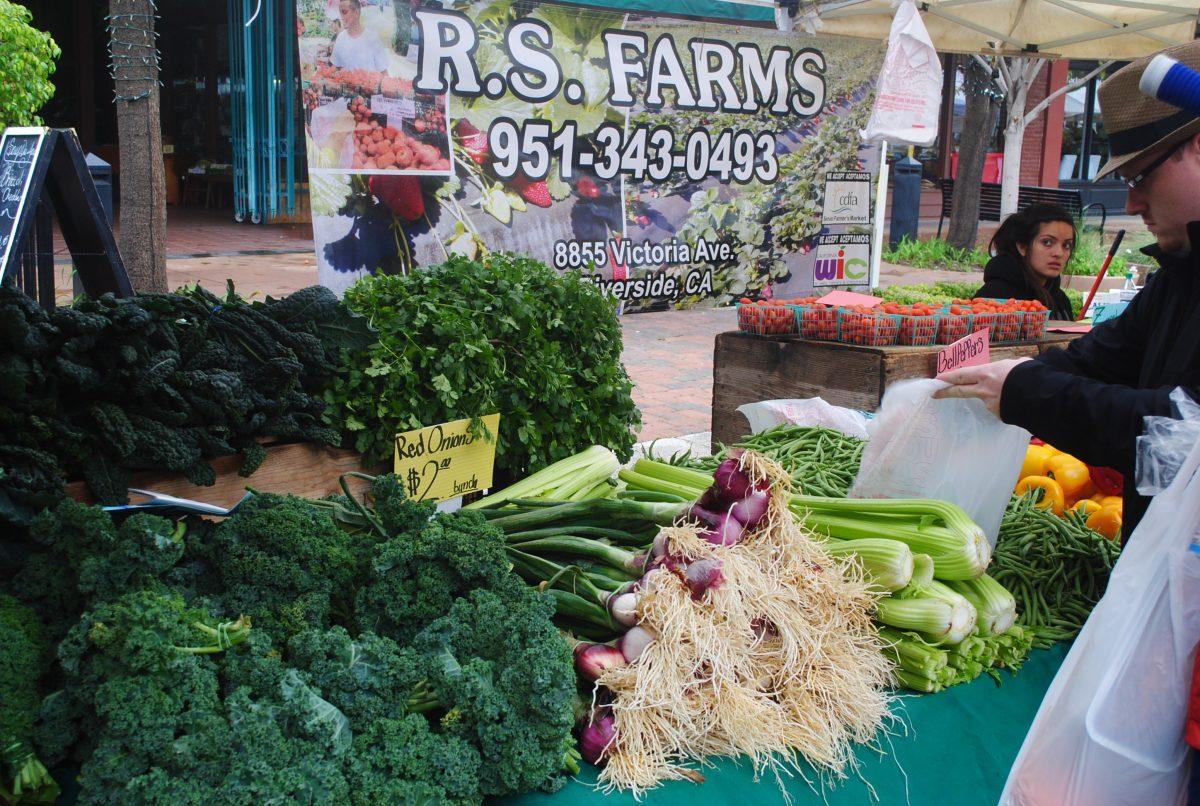JASMINE RAMIREZ | STAFF WRITER
Early Saturday mornings, while the sun is gleaming and the air is fresh, most are still sleeping from the previous day’s tasks, but local farmers are preparing their produce for the Riverside community at the Farmers Market in downtown Riverside.
Located in the Riverside arts district on Main Street between Fifth and Sixth Street, the Farmers Market is open every Saturday from 8 a.m. and to 1 p.m., rain or shine.
Riverside’s website explains it simply as “a place for area farmers to sell their seasonal crops directly to customers.”
“We arrive at about 6 a.m., two hours ahead of opening,” says Sarah Yost, a vendor along with her father at Carol’s Gardens.
Yost and her family began their business four years ago started by her father Tom Yost. Their products are all organic and include cilantro, curly kale, cucumber, eggplant and many herbal tea remedies with healing qualities. Carol’s Gardens focuses on healthy living.
Consumers rave about the hummus they find at “Mom’s Specialty Food,” that has many delicious and well-seasoned flavors to chose from. The choice of pita bread or chips is wide and includes whole-wheat options.
“I can’t get enough, it tastes good on everything,” said Alex Garibay, a regular customer of Mom’s Specialty Food. Many more products include flowers, garden plants, bakery items and different fruits and vegetables.
Benefits of shopping at the farmers market include helping the local economy and agriculture, as well as providing shoppers with fresher, healthier eating, according to many consumers. The farmers are lively and happy to assist anyone, providing people with recommendations recipes on how to prepare their product. Unlike a regular grocery store, and many products are sold individually and may be sampled.
“You get to support small farms and also know exactly what you’re buying,” says Alberto Gama from Gama Farms.
Bright, freshly grown fruits and vegetables are often organic and haven’t been sprayed with chemicals. All produce is locally grown and mostly seasonal items. Foods and plants travel less and are picked one to two days before. It may result in costing a little more, but buyers receive a better product than traditional grocery stores. Consumers feel they often stumble upon something new to taste, get to know the vendors and start relationships.







